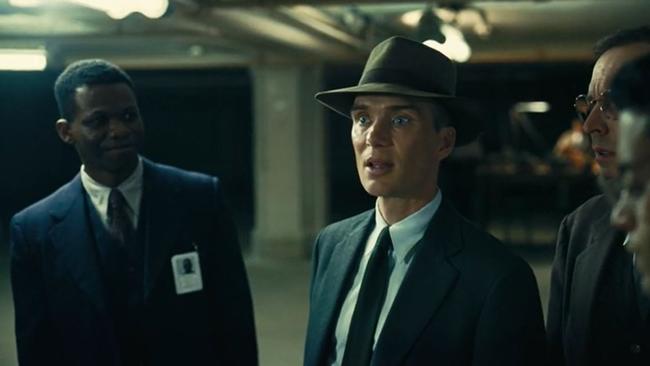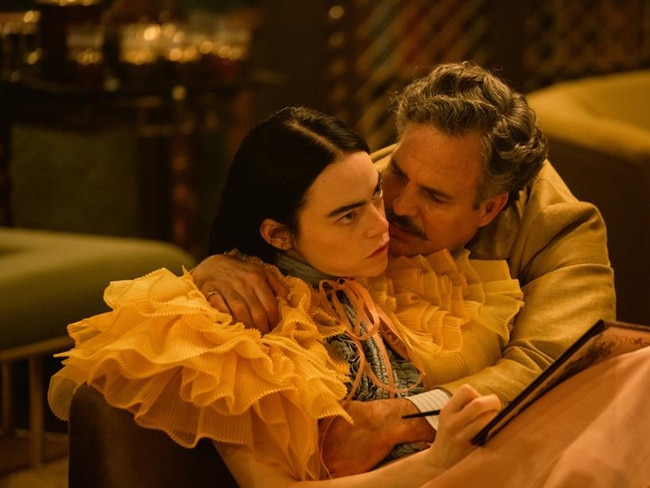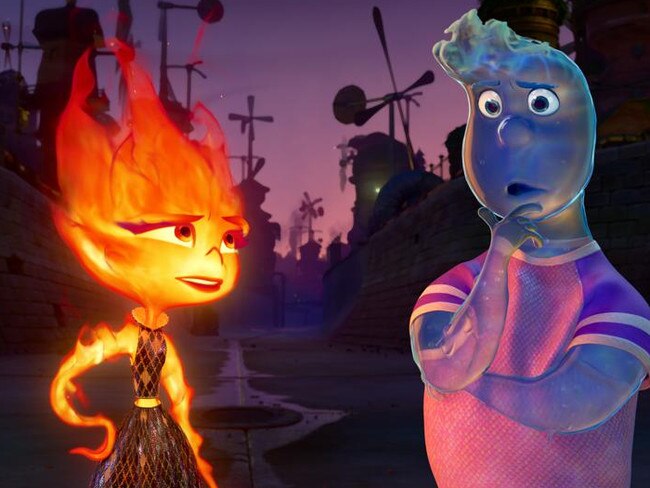Original movies, not franchises, finally find success
Post-pandemic moviegoers want something more than sequels, remakes and Marvel superheroes – as shown by the year’s most successful films.

Has the pandemic changed cinemagoers’ taste? The case for yes might cite the top box-office performer in the US this year – Barbie, which wasn’t a remake or a sequel or an adaptation of a comic book. The last time that happened was 2014, when American Sniper came out.
As the movie industry returned to normal for the first time this decade, the audience kept suggesting it wanted a new normal.
Ticket buyers refused to be suckered into, for instance, showing up at The Marvels, which will likely be the first of the 33 Marvel Cinematic Universe films to fail to earn $US100m at the domestic box office.
The empty seats that greeted other super-yawners such as Shazam: Fury of the Gods, Blue Beetle, Ant-Man and the Wasp: Quantumania and The Flash also signalled changing audience tastes.
Who would have guessed that Oppenheimer would earn more than the year’s first three DC Comics movies combined?

Other half-hearted retreads, such as Indiana Jones and the Dial of Destiny and Fast X also flopped, while the success of low-budget kidnapping thriller Sound of Freedom – which out-earned both of them domestically (and Creed III, and Mission: Impossible 7 and Scream VI) – suggested again that audiences are eager for something new. Yet the Hollywood recycling industry churns on.
Original stories were easy to find, if you knew where to look. My favourite film of the year, Flora and Son (Apple TV+), was both sweet and gritty, a working-class Dublin love story about the exasperating but forceful bond between a young single mother and her teen son.
Eve Hewson radiates star power in every scene as the party-girl mother, who has a spiky relationship with her boy, Max (Oren Kinlan), until the two stumble into making music together. Writer-director John Carney, who also co-wrote the wonderful songs, has now made Dublin the co-star of three of the century’s best original musicals, following Once and Sing Street.
The year’s finest drama, Oppenheimer, exhibited a new approach to an ancient genre, the biopic, by splitting J. Robert Oppenheimer’s consciousness as dynamically as he split the atom. Writer-director Christopher Nolan crafted a breathless three-hour experience with a fractured narrative, clever editing and layered sound to take us inside one of the 20th century’s greatest and most tortured minds, and Cillian Murphy was the perfect actor to generate the intense focus of the American Prometheus.

Close behind those two films was another incandescently original vision, Yorgos Lanthimos’s fantasia, Poor Things, an eye-poppingly inventive Voltaire-style fable about feminism and sex. A gutsy Emma Stone, who spends much of the movie in bedroom situations, goes on a literal and metaphorical journey to rival Candide’s, ably supported by Willem Dafoe as a sort of kindly Dr Frankenstein, and Mark Ruffalo as a hilarious cad.
Equally unpredictable and even more impudent was writer-director Emerald Fennell’s macabre black comedy, Saltburn, dominated by Barry Keoghan’s bold and twisted performance as an Oxford student from the wrong side of the class divide who yearns to fit in with the swells at their country estate.
The rare children’s movie with a novel storyline, Pixar’s evocatively animated feature, Elemental, fashioned an enchanting love story around two incompatible entities – fire and water – in the service of a gentle plea for tolerating differences.

The complete absence of tolerance was the subtext of the bone-chilling The Zone of Interest, a Holocaust movie that sidesteps violence and abuse and yet is all the more powerful for it. The euphemism of the title – a bland German phrase for Nazi extermination camps – sets the tone for a portrait of an SS commandant (Christian Friedel) and his wife (Sandra Huller), who are placidly raising their children in what they think of as their dream house, which is separated only by a wall from Auschwitz. British director Jonathan Glazer’s film of the Martin Amis novel arrives in a season of anti-Semitic depredation, reminding us of how easy it can be for some to build a mental wall to block out Jewish suffering.
Another timely film about the banality of evil, the documentary 20 Days in Mariupol (video on demand and YouTube), takes us back to the launch of Russia’s Ukraine invasion, with director Mstyslav Chernov’s dry voiceover narration providing a play-by-play of every atrocious act by Vladimir Putin’s forces. This is war at ground level – grotesque, harrowing and completely unnecessary.
As broadly as horror stretches in that documentary, another one offered equal power by zooming in on the struggle of one beleaguered man. Universally beloved actor Michael J. Fox let director Davis Guggenheim into his life with advanced Parkinson’s disease in Still: A Michael J. Fox Movie (Apple TV+), in which the Back to the Future star gamely accepts the various ways degenerative disease has upended his life.

Fox maintains a wry sense of humour and a fundamental sunniness that makes him a model for how to face human frailty.
Suffering and yet triumphing provides the subtext of one of the finest music documentaries ever made, a look at an obscure prog-rock band that barely cracked the charts decades ago but maintains one of the most enraptured fan bases in the industry. In the Court of the Crimson King: King Crimson at 50 (video on demand) hones in on the obsessive pursuit of perfection by guitarist and band leader Robert Fripp as he and his colleagues provide a stirring answer to the question: What is it that we live for?
“The only thing that’s gonna be left behind is the work,” notes cancer-stricken drummer Bill Rieflin as he faces death, “so it had better be good.”

Finally, on the opposite pole of the pop music compass – the glittery end with the flush of youth and the sparkle of tiaras – another documentary showcased the peak of a talent whose only peers in the history of mass-media pop performance are Elvis Presley and Michael Jackson, but without their self-destructive impulses.
In Taylor Swift: the Eras Tour, director Sam Wrench ingeniously edits together three Los Angeles concerts at SoFi Stadium to capture both the scale of the tour and intimate close-ups of Swift, the defining singer-songwriter of her generation.
Fans get everything they could have asked for and everyone else gets a definitive answer to the question, “Why is she such a big deal anyway?”
The Wall Street Journal
